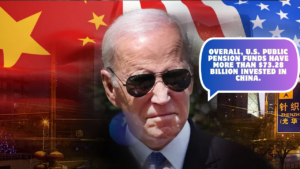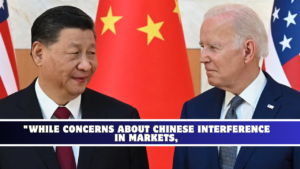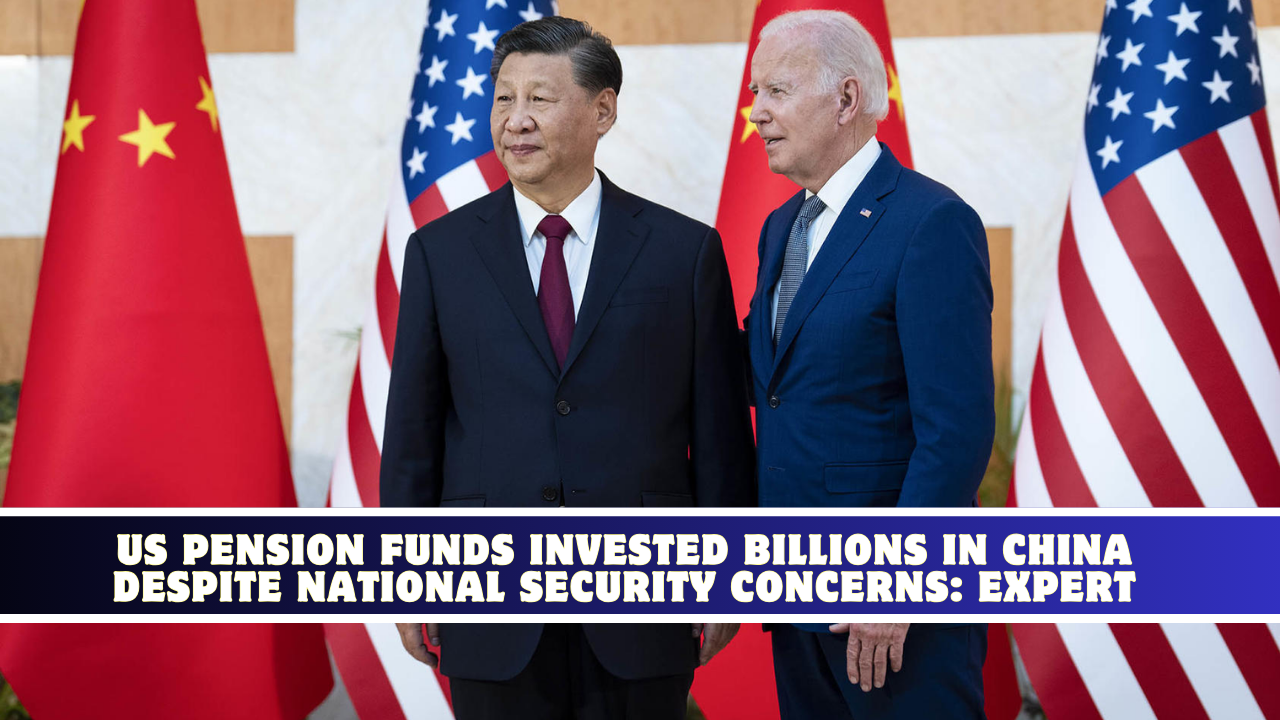In the past few years, billions from the American public pension funds flowed into China. Some experts have regarded this trend as concerning as tensions were only on the rise between the U.S. and Beijing.
A new report from Future Union, a bipartisan nonprofit, found that U.S. public pension funds had invested over $68 billion in China since 2020 despite worsening relations between the two countries during that time.
A new report, obtained by the New York Post, found that 56 of the 74 largest American pension funds have invested in the Chinese market during the time span, with the report commenting that the money “has been aiding and fueling the technological advancement of China.”
“In the past 12 months, 24 investments alone have been made [into venture capital and private equity funds in China,] which should be acknowledged as support for the technological advancement of China,” the report said. “Our research indicates four of the largest US public pensions have invested in China in the last few months.”
The report found that one of the largest funds investing in China was from the New York State Common Retirement Fund, which had over $8.3 million invested in the Chinese market. Other large public pension funds that have invested billions include the California Public Employees Retirement System, the California State Teachers System, the Washington State Investment Board, San Francisco Employees Retirement System, and the Pennsylvania Public School Employees Retirement System, which have placed $3.2 billion to $7.86 billion in China.

Overall, U.S. public pension funds have more than $73.28 billion invested in China.
The trend of pouring money into China is concerning,” Future Union Executive Director Andrew King told the New York Post, particularly in light of the national security threat from China.
“The CCP poses a clear and present threat to America’s national security, and yet the fiduciaries of our retirees’ pensions and university endowments act as if they are oblivious to the fact and despair at accountability, standing in the way of America’s national interests,” said King. “That must end now.”
While King mentioned that he doesn’t “accuse money managers of intentionally backing China over the U.S.,” he argued that such fund leaders have taken the “path of least resistance in preserving optionality instead of demonstrating true leadership and doing what’s right instead of what’s easy.”
“They’re making investments in startups that are competing against us and democratically aligned countries with a rigged system where the [CCP] members basically put the thumbs on the scale of who wins, and so obviously returns are better,” King said. “The fact is [investors] run portfolios, they want diversification and frankly, if the returns are good in China, they’re going to invest in try it out.”
However, economist Dr. Ryan M. Yonk with the American Institute for Economic Research said that pension funds investing in China and even Hong Kong-based firms wasn’t a surprising fact given how well those markets have performed historically.
“Increasingly, national security objections to investment in the Chinese market have been raised in response to the heightened tensions between the U.S. and China and a desire in some circles to use regulation of investment as a foreign policy tool,” Yonk told Fox News Digital. “Future Union, which is the source of the report, is among those that have this explicit desire to draft pension funds like those listed to their preferred policy outcomes.”
Yonk commented, “Such attempts to prevent the investments could potentially leave beneficiaries worse off as a result.”

“While concerns about Chinese interference in markets,
failure to protect Intellectual Property, and corporate espionage are real policy issues that should be addressed, pension funds have fiduciary responsibilities to balance risk and reward within their portfolios in an attempt to maximize the return and guarantee the ability to pay the pension obligations,” said Yonk. “The investments listed in each case are part of diversified portfolios that invest across sectors and regions.”
Yonk also indicated that despite the claims of how China’s manipulation of markets can assure better returns for whoever invests in it, Chinese markets actually have a more pessimistic long-term economic outlook.
“As a result, investments become less attractive, and pension funds and other institutional investors change their investment strategy and reduce their exposure to China,” said Yonk. “Attempts to use public policy to limit the ability of Public Pension systems to invest internationally makes the risk reward calculation more difficult and may leave opportunities for returns unrealized which can ultimately harm the workers to whom the funds owe a duty.”
FAQs
1. Why are U.S. pension funds invested in China?
- U.S. pension funds are invested in China to diversify their portfolios and seek higher returns in the growing Chinese market. China is one of the world’s largest economies, and many investment managers see opportunities for significant returns in its rapidly expanding sectors.
2. What are the national security concerns related to investing in China?
- National security concerns stem from the potential that U.S. investments could indirectly support Chinese companies linked to the Chinese government or military, which could pose a threat to U.S. interests. Additionally, there is concern over China’s opaque financial system and its potential to manipulate markets or use economic leverage against the U.S.
3. Which U.S. pension funds are invested in China?
- Many large U.S. pension funds, including those managed by state governments, public employee retirement systems, and private sector pension plans, have investments in Chinese stocks, bonds, or companies. Specific funds and their allocations can vary, but they often include major investment firms with global portfolios.
4. How much money is invested in China by U.S. pension funds?
- The exact amount varies, but it is estimated that billions of dollars from U.S. pension funds are invested in China. This includes investments in Chinese companies listed on U.S. and Chinese stock exchanges, as well as through international mutual funds and index funds that include Chinese assets.
5. What are the risks of U.S. pension funds investing in China?
- Risks include political and regulatory uncertainties, market volatility, lack of transparency in Chinese companies, and potential conflicts of interest. Moreover, there are concerns about the ethical implications of investing in companies that may be involved in human rights abuses or linked to the Chinese military.

